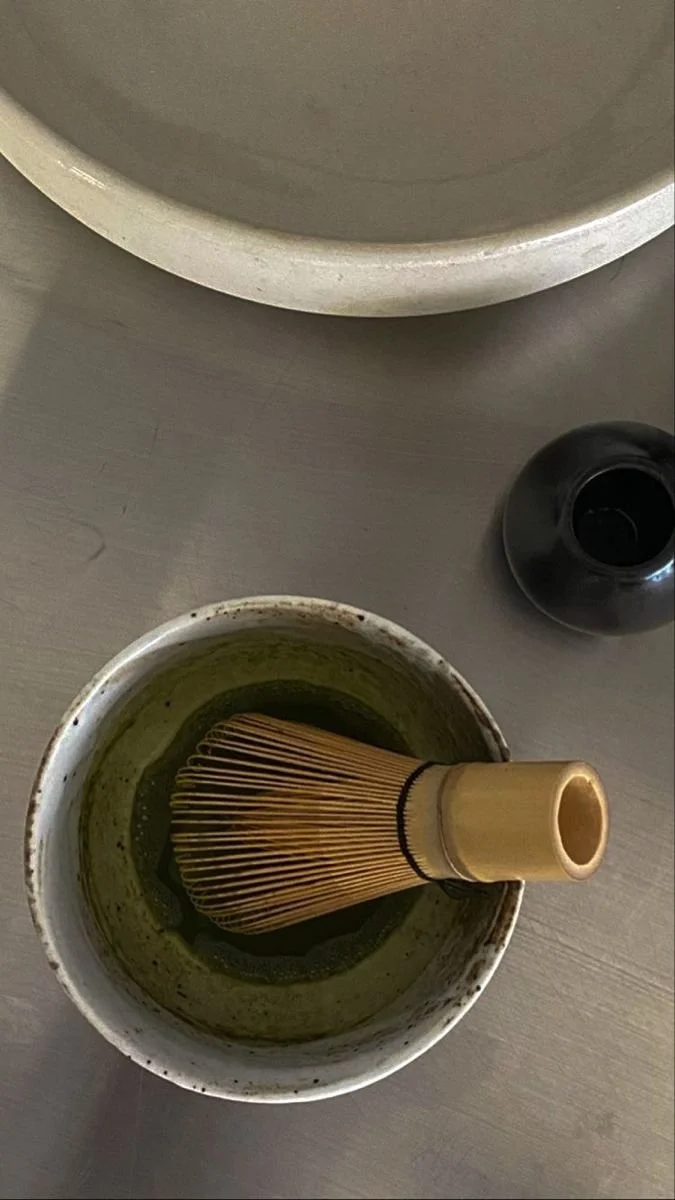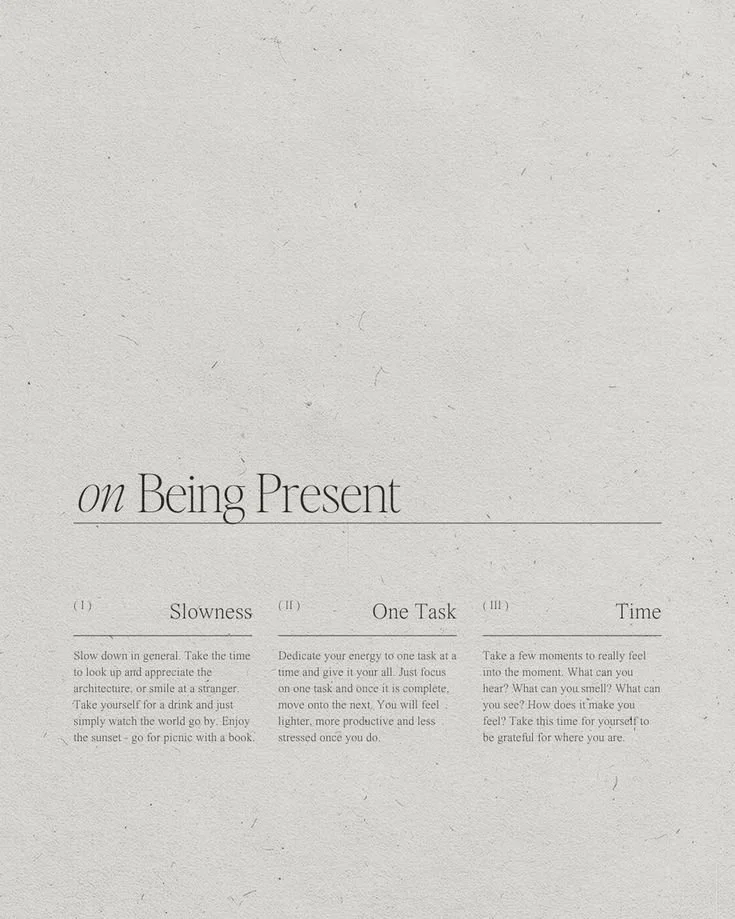Picture yourself on a tranquil, sun-kissed beach. Imagine the gentle warmth of the sunshine caressing your skin, the soothing sound of turquoise water playfully kissing your toes, and the refreshing ocean breeze softly whispering endless possibilities into your ear. It sounds like paradise, doesn't it?
Having healthy routines in place sets the tone for your day by grounding you in a sense of stability and purpose. Starting your day with activities that nourish your body and mind, such as meditation, exercise, or a nutritious breakfast, can establish a positive momentum that carries through the rest of your day. By prioritizing self-care and healthy habits in the morning, you are not only taking care of your physical well-being but also setting a powerful intention for how you want to show up in the world. Consistency in these routines can lead to increased energy, focus, and a greater sense of overall well-being.
However, even in this idyllic setting of Florida beach, you may find yourself feeling stagnant, unable to move forward. A heavy weight seems to settle upon you, hindering the joy and personal growth you yearn for. This sensation of being stuck can unexpectedly arise in any location, regardless of its breathtaking beauty.
The culprit? Sometimes, it's the little things you overlook—the stack of your to-do lists that keeps growing despite your efforts to stay organized. The draining energy of a toxic environment or unhealthy habits you cling to can weigh you down without you even realizing it.
Breaking free from these obstacles may seem impossible at first, but here's the good news: it's not! You have the power within you to make positive changes and take steps toward a more fulfilling and balanced life.
In this enlightening article, we shine a light on these often unnoticed hidden culprits holding you back from reaching your full potential. Together, we'll carefully identify the deep roots of your stagnancy and empower you with effective strategies and actionable steps to finally break free from limitations and bloom fully into your most authentic self.
No. 1
Addiction
Addiction to drugs and alcohol can be one of the primary obstacles that impede your journey toward personal growth and self-discovery.
This dependency on substances often clouds your true potential, making it challenging to align with your inner power and authenticity. It traps you in a cycle of negativity. It consumes your thoughts and actions, leaving no room for personal growth. Relationships suffer, work and school performance drop and health issues arise thus creating a barrier that makes it difficult for you to move forward.
But there is always hope on the horizon. With the guidance and assistance of experienced professionals, as well as a strong support system, it is entirely possible to triumph over addiction. One of the most effective avenues to explore for aid is through reputable rehabilitation centers.
These facilities offer a well-organized setting where individuals can safely undergo detoxification and participate in therapy sessions. Additionally, they provide access to expert support and a respite from the daily challenges and triggers that can hinder progress toward recovery.
However, if the idea of staying in a foreign place does not appeal to you, certain rehabs in Florida also provide comprehensive treatment options in the comfort of your own home. These at-home programs ensure that you receive equivalent levels of care and support, all within a setting you are familiar with.
Moreover, fostering healthy self-care practices such as engaging in regular physical activity, consuming nutritious meals, prioritizing adequate rest, and incorporating mindfulness techniques into your daily routine can significantly enhance your path toward healing, overall well-being, and a deeper connection with yourself. Self-care is a fundamental aspect of nurturing your mind, body, and spirit, leading to a more fulfilling and balanced life.
No. 2
Procrastination
Procrastination can also be a hidden obstacle that stealthily creeps into your journey of personal growth, hindering your progress and leaving you feeling stagnant and unfulfilled.
You find yourself continuously procrastinating, putting off tasks until later, and before you know it, the list of things to do has grown exponentially. As a result, you become engulfed by the sheer number of pending items, leading to overwhelming feelings of stress and anxiety. This perpetual cycle of postponing not only consumes valuable time but also saps your energy reserves, hindering the advancement of your personal development journey.
But fear not—there's a way to break free from the shackles of overwhelm! Here's how you can empower yourself to take charge of your tasks and achieve success: First, embrace the power of breaking down big tasks into smaller, more manageable pieces. By doing so, you not only reduce the feeling of being overwhelmed but also pave the way for steady progress. Next, establish clear and realistic deadlines that serve as a guide, ensuring you stay focused and motivated.
Additionally, ensure you stay organized and on track by effectively scheduling each day with purpose and intention. In addition to utilizing tools such as to-do lists or productivity apps, remember that maintaining focus and productivity requires dedication and perseverance. Your efforts in establishing a structured routine will eventually yield valuable results that align with your goals and aspirations.
No. 3
Toxic Environments
Moving forward in life can be incredibly challenging when toxic environments, whether at work or within relationships, prevent personal growth and hinder the pursuit of one's true potential.
The negative influence of toxic surroundings can create obstacles that make it difficult to thrive and reach inner peace and fulfillment. These environments can exist anywhere, whether it's dealing with undermining colleagues at work, emotionally draining or negative friends, or romantic relationships filled with disrespect or manipulation. Such places are filled with negativity, constant criticism, or even abuse, all of which can significantly decrease your confidence and motivation.
That’s why it's crucial to recognize the impact of toxic environments, whether they stem from family members who constantly criticize or friends who leave you feeling depleted. Taking proactive steps to remove yourself from such detrimental situations is important to your well-being. It's important to set boundaries and prioritize your mental and emotional health by limiting interaction with individuals who do not support your growth.
You don't have to completely cut people out of your life, but prioritize your well-being above all else. Focus on building a strong support system that surrounds you with positivity and encouragement. Reconnect with those friends who uplift and inspire you on your journey. Additionally, it's essential to learn to say "no" when necessary and establish clear boundaries that respect your limits. By taking these mindful and intentional steps, you can pave the way for significant personal growth, self-xZ, and overall well-being.
No. 4
Perfectionism
Perfectionism can also be one of the reasons you feel stuck in life, as it often leads to unrealistic expectations and a fear of failure that hinders progress and growth.
This constant pursuit of flawlessness can create a sense of inadequacy and prevent you from taking risks or stepping out of your comfort zone to explore new opportunities for personal development and fulfillment. It's the constant need to be flawless and the fear of making mistakes that hold you back from embracing your true potential. This limiting mindset can lead to excessive stress and self-criticism, hindering your progress and making it challenging to move forward with your goals and tasks effectively.
To overcome it, you can start by accepting that mistakes are a natural part of learning and growth. Additionally, setting realistic goals and expectations can also help alleviate the pressure you put on yourself. It is important to remember to break down your tasks into smaller steps, acknowledge your efforts, and celebrate the progress you make along the way.
Moreover, nurturing self-compassion is essential on your wellness journey. Remember to be gentle with yourself and cultivate gratitude for your endeavors, even in moments of imperfection. Embrace the mindset of valuing progress over perfection, paving the way for enhanced personal development and overall joy.
Takeaways
It is essential to recognize and delve into the underlying causes that contribute to feeling stagnant. Whether these roots lie in addiction, procrastination, toxic environments, or perfectionism, acknowledging them is the initial stride toward liberation. Through intentional actions and seeking guidance, you can tackle these obstacles and open doors to self-improvement and contentment.
LOOKING FOR WELLNESS RESOURCES?
Are you looking to enhance your wellness routine? Explore our wellness partners who offer a wide range of resources to support your journey toward holistic living and well-being. From mindful living practices to self-care techniques, our partners are here to help you elevate your wellness routine to support you on your journey of health and vitality.















































































































